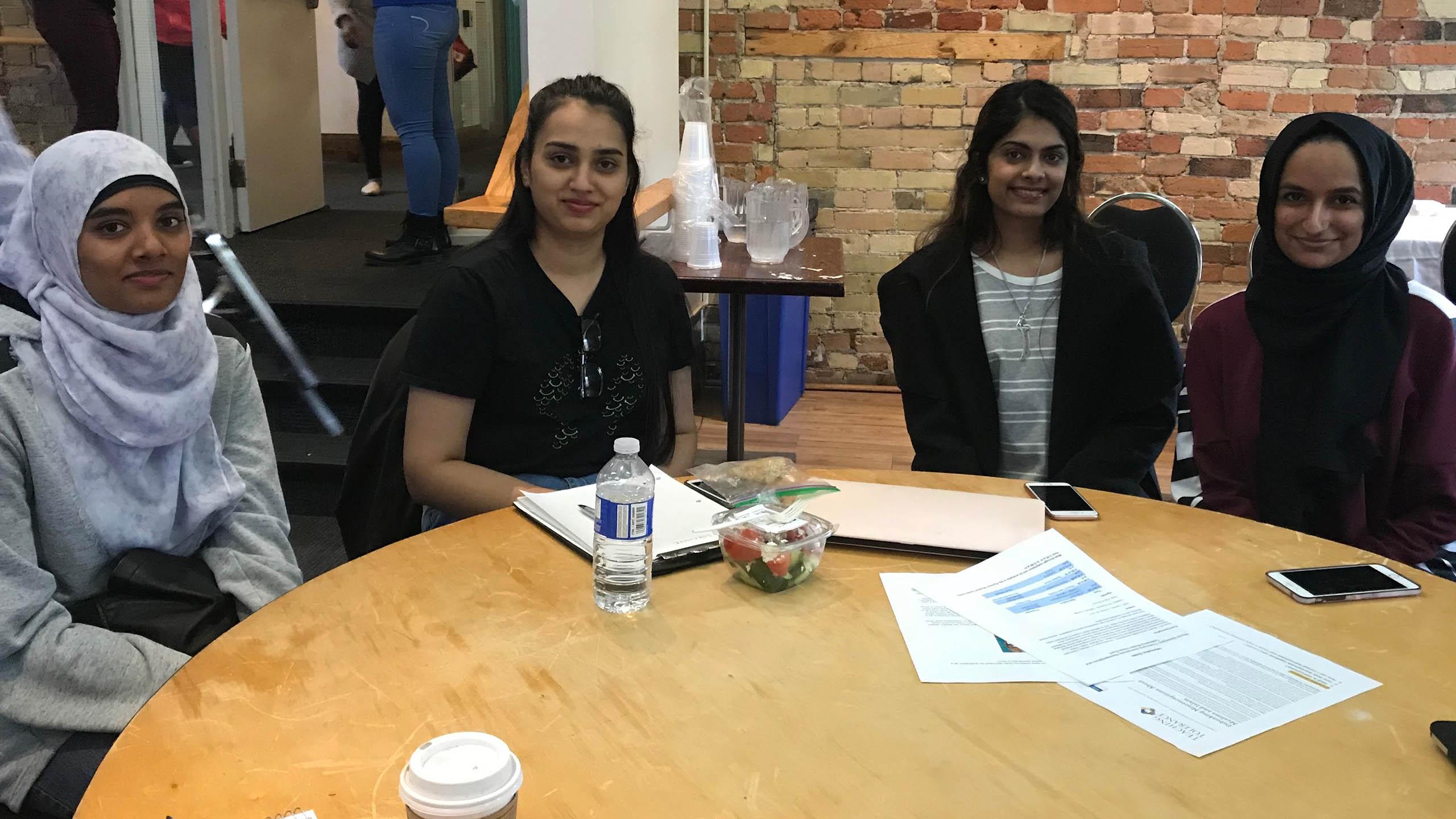By Daniela Sosa Roque
Students and members of the community participated in a roundtable and panel discussion on Oct. 24 that condemned Islamophobia and current misrepresentations of the Muslim community.
The event “Beyond Stereotypes: Challenging Islamophobic Representations, Celebrating Muslim Voices” was held as part of Social Justice Week at Ryerson. It provided an open learning environment geared towards exploring how Muslims are redefining what it means to be Muslim in an age of rising Islamophobia.
Panelists, Boonaa Mohammed, Farheen Khan and Asma Maryam Ali shared their lived experiences and offered ways to combat Islamophobia.
Mohammed, a graduate from the Ryerson RTA program, said that being at the intersection of two identities, as Black and Muslim, made him feel like he was consistently “under the microscope.”
“I never knew what it felt like to be ‘normal,’ to not be questioned, to not be guilty,” he said. “It just became part of my identity.”
Rohina Kabir, a third-year politics and governance student, argued that the negative portrayals of Muslims in the media combined with fear mongering in politics also formed Islamophobic representations.
“I think politics as a whole has a role to play in this. A lot of it is about finding the good guy and the bad guy,” Kabir said. “So I think that’s one of the ways Islamophobia can be combated, by politicians not criticizing Islam itself.”
Khan was the first hijab wearing woman to run as a candidate for MP in the federal election in Mississauga. While she ran for MP, Khan faced many challenges and found she had to construct her image around being Canadian “enough,” despite being born in Canada.
Muslim women are often the main targets of Islamophobic attacks and Khan recalled being followed and sexually assaulted by a man that told her “Muslims were being bad in the world.”
Khan’s advice to those who don’t identify as Muslim is to be a real ally.
“Don’t be a bystander. You may have access to spaces that we’ll never have access to. You’re speaking to people that perhaps don’t look like us, that look more like yourselves,” she said. “When you hear them say something that’s inappropriate call them out on it. It doesn’t have to be rude.”
Mohammed emphasized the role of knowledge in preventing Islamophobia. “Knowledge is power. Knowledge is what allows us to dismiss those negative notions and misunderstandings that we have with one another,” he said.
Fatima Khan, a third-year politics and governance student, said there needs to be emphasis on expanding knowledge in schools about different cultures and teaching the next generations more about activism.
“Canada likes to preach this idea that we’re diverse and multicultural, but not everyone’s history is included in the picture. I think that forms the narrative of ignorance in other cultures,” she said. “It’s just fear of the unknown—what you don’t know you fear.”
Throughout the discussion, students agreed that overcoming Islamophobia meant sometimes having to engage in difficult conversations.
Bahja Ali, a third-year midwifery student, said this includes speaking out and being a social justice advocate.
“Advocating for people whether you come from that community or not, that’s a step towards improvement.”













Leave a Reply